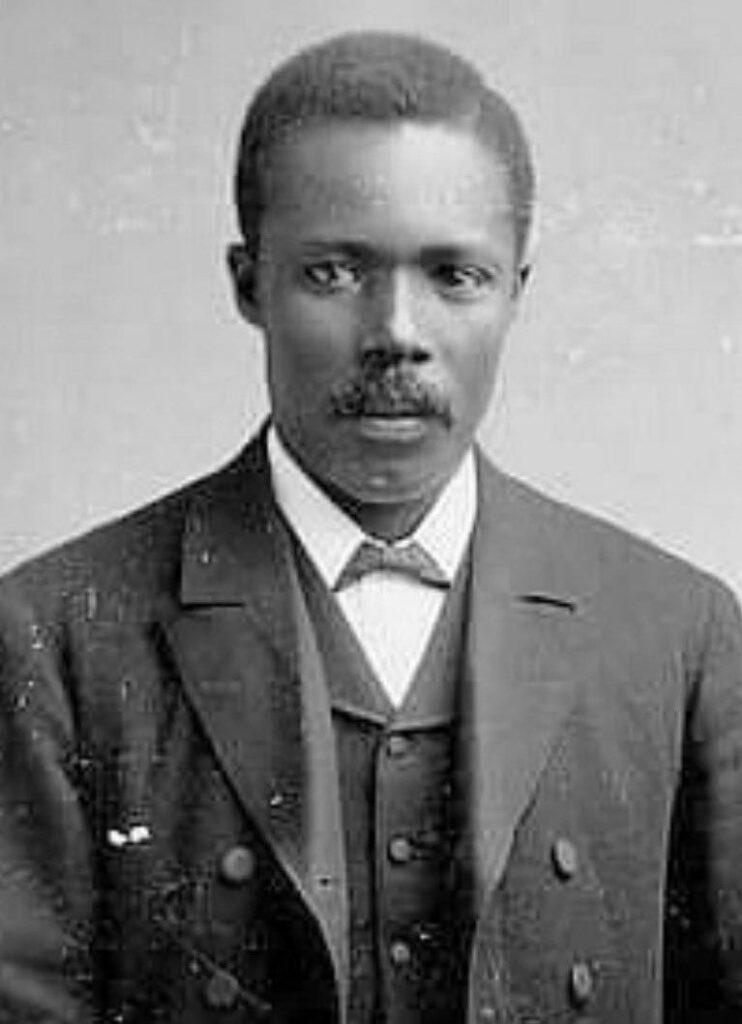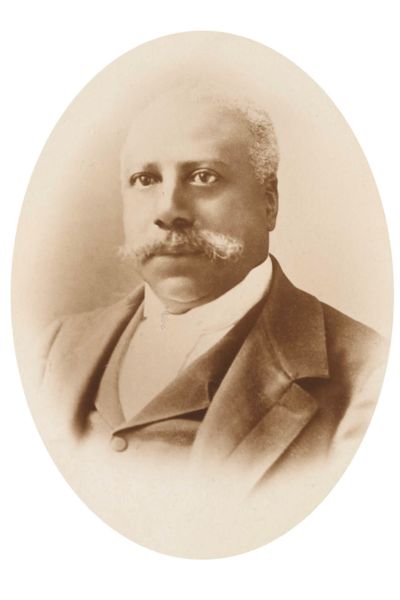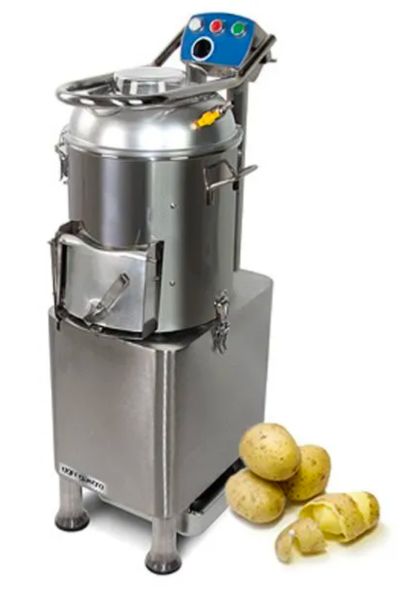Key Takeaway:
- Potato chips are a popular snack food worldwide with a rich history.
- The legend surrounding George Crum’s invention of potato chips at Moon’s Lake House is well-known.
- Other claims to the invention of potato chips exist, including accidental discoveries by Catherine Adkins Wicks and disputed claims by Hiram S. Thomas.
Introduction
Potato chips, loved by many worldwide, have a fascinating history and enduring popularity as a snack.
In this article, we’ll delve into the intriguing origins and widespread consumption of this beloved crispy treat. From humble beginnings to becoming a staple in many households, join us as we explore potato chips’ irresistible allure and global impact.
The popularity and history of potato chips as a snack food worldwide
The beloved snack food, potato chips, has a lengthy history and still remains popular today. It is often said that the first potato chips were created by George Crum at Moon’s Lake House in Saratoga Springs.
This led to the invention of “Saratoga Chips” and their immediate success. Other claims to the invention of potato chips come from Catherine Adkins Wicks’ accidental discovery and Hiram S. Thomas’ disputed obituary.
William Tappendon is another important figure in the history of potato chips. He was influential in manufacturing and marketing potato chips, taking them from a regional delicacy to a nationwide sensation. Technological advances also boosted potato chips’ popularity, with the introduction of a mechanical potato peeler making it easier for mass production.
Nowadays, potato chips are consumed worldwide and come in many flavors and packaging. Healthier alternatives have been developed, too. Different countries have their own versions and names for this snack. Additionally, there are other potato-based snacks such as Pringles and potato sticks.
Potato chips’ continued success over centuries shows their lasting appeal. Regardless of who invented them, people still enjoy the crunchy snack and all its delicious flavors.
The Legend of George Crum
In the legendary tale of George Crum, we uncover the fascinating origins of potato chips at Moon’s Lake House in Saratoga Springs.
From the incident that led to the creation of the first potato chips to the naming of “Saratoga Chips,” this sub-section delves into the intriguing context and early popularity surrounding this beloved snack.
Context: Moon’s Lake House and Saratoga Springs
George Crum, an African-American chef, is renowned for inventing the iconic snack food potato chips. This legend took place at Moon’s Lake House, a popular restaurant and resort located in Saratoga Springs during the mid-19th century.

The story goes that one evening, Crum was tasked with making fries for a customer who kept sending them back, as they were too thick and soggy. Fed up, he sliced them paper-thin, fried them until crispy, and heavily seasoned them with salt. Surprisingly, the customer loved the new creation!
This newfound snack quickly became known as “Saratoga Chips” and was a hit with locals and tourists alike.
Though the legend of George Crum’s invention is widely accepted, there are other claims regarding the origin of potato chips. Catherine Adkins Wicks, Hiram S. Thomas, and Emeline Jones are all credited with playing a role in early potato chip creation.
Either way, the legend of George Crum’s invention of potato chips is delectable, with a hint of controversy and a pinch of genius.
The popular legend surrounding George Crum’s invention of potato chips at Moon’s Lake House
George Crum’s link to potato chips began at Moon’s Lake House. Although others have claimed to invent the snack, his story is now well-known. It illustrates his inventive mind and willingness to try new things.
Others have argued that Catherine Adkins Wicks first made thin, crispy slices when potatoes fell into hot oil. Hiram S. Thomas’ obituary said he invented them in 1871. Plus, Emeline Jones and other cooks experimented with cooking methods.
But, George Crum’s connection to popularizing potato chips on a large scale is undisputed. He took a regional specialty and turned it into a popular snack across the country.
This legend is a testament to human creativity and culinary invention. It shows that unexpected events can lead to iconic creations. Potato chips have gained worldwide fame and are now a beloved snack.
The naming of “Saratoga Chips” and their initial popularity
The naming of “Saratoga Chips” and their initial fame can be credited to George Crum’s miscalculation at Moon’s Lake House in Saratoga Springs. A demanding customer inspired Crum to slice potatoes paper-thin and fry them ’til crisp.
These crunchy potato slices were an instant hit and referred to as “Saratoga Chips“. Their unique taste plus the association with the renowned resort town attributed to their initial success.
William Tappendon is also responsible for the nationwide appreciation of potato chips. He was one of the first to commercially produce and sell potato chips on a large scale. This enabled mass production and distribution, popularizing potato chips in the late 19th century.
Furthermore, Catherine Adkins Wicks and Hiram S. Thomas also had unintentional discoveries involving thinly sliced potatoes resembling modern-day potato chips. Additionally, Emeline Jones was among the early cooks taking part in creating this popular snack food.
The use of a mechanical potato peeler was also essential in potato chip mass production. This technology improved speed and efficiency in preparing large amounts of potatoes for frying. Thus, potato chips became more accessible and inexpensive, contributing to their immense popularity.
Other Claims to the Invention of Potato Chips
Other individuals have also made claims to the invention of potato chips, each with their own unique stories and circumstances. From Catherine Adkins Wicks and her accidental discovery, to Hiram S. Thomas and the disputed claims mentioned in his obituary, and even Emeline Jones and her exploration of the role of other cooks in the early creation of potato chips, the history of this beloved snack holds intriguing tales that deserve exploration.
Catherine Adkins Wicks and her accidental discovery
Catherine Adkins Wicks is known for her accidental discovery of potato chips. Unlike George Crum, it wasn’t intentional. But, her contribution is undeniable.
History tells us that while preparing dinner one day, Wicks sliced a potato too thin. She decided to fry them instead of throwing them away. The outcome? Deliciously crispy chips that quickly became popular among her family and friends.
Wicks’ accidental discovery has further added to the history of potato chips. It showcases how different people stumbled upon this snack through unique circumstances. Her role is not as widely recognized as Crum’s, but it still highlights the many origins and multiple claims surrounding the creation of potato chips.
Her invention has been enjoyed by generations of snack-lovers. The debate surrounding who really invented potato chips is proof of their enduring popularity. It also holds testament to Wicks’ contribution alongside others in creating the beloved snack that is savored all over the world.
Hiram S. Thomas and the disputed claims in his obituary
Hiram S. Thomas is a contentious figure in the history of potato chips. His obituary states he invented them while working as a cook at Moon’s Lake House. Other people also claim to have invented them.
It is unclear who truly invented potato chips. Historians and chip fans debate the details and contributions of each person.
No matter the controversy, Hiram S. Thomas’s obituary illuminates an interesting era in potato chip history. It highlights the complexity of attributing the invention to one person.
When studying historical disputes, we should consider multiple perspectives. This helps us gain a more complete understanding of the past. We can appreciate the work of Emeline Jones and other cooks behind great snack foods.

Emeline Jones and the role of other cooks in early potato chip creation
Emeline Jones and other cooks have an important history in the invention of potato chips. Even though George Crum is often credited with the invention, there are different stories. For example, Catherine Adkins Wicks might have accidentally discovered them while cooking in her boarding house. Hiram S. Thomas also said he invented them in his obituary. These other stories show that George Crum wasn’t the only one responsible for potato chips. Various cooks were involved at the time.
The Role of William Tappendon
William Tappendon played a crucial role in the history of potato chips. His contributions as one of the pioneers in producing and selling potato chips helped transform this regional specialty into a nationwide sensation. Discover the fascinating journey of how Tappendon’s innovation and entrepreneurial spirit shaped the potato chip industry, turning it into the beloved snack we know today.
Tappendon’s contribution as one of the first to produce and sell potato chips
Tappendon was a key player in the early potato chip industry. He saw the potential of this snack and started selling them. His efforts made potato chips a national sensation and everyone loved them!
His dedication and entrepreneurial spirit enabled mass production and distribution of this delicious treat. Thanks to Tappendon’s business knowledge, potato chips became widely available.
Tappendon’s work opened the door for others to produce and sell potato chips. As more people noticed the consumer demand and profits for these chips, an industry was born. Tappendon’s contributions as a producer and seller of potato chips were crucial in shaping the industry and setting the stage for its future.
In conclusion, Tappendon played a huge role in popularizing potato chips. His innovation, business acumen, and determination made potato chips go from a regional specialty to an international snack. Thanks to Tappendon, we can all enjoy this beloved treat today!
Transformation of potato chips from a regional specialty to a nationwide sensation
Potato chips have come far! From a local delicacy to a national hit, these savory snacks have won the hearts (and taste buds) of people everywhere. It all started in the late 19th century. George Crum, a chef at Moon’s Lake House in Saratoga Springs, is credited with inventing them.
Legend has it, Crum created them by accident. He was frustrated with a customer’s complaints about his thick French fries, so he sliced potatoes paper-thin, fried them until crispy, and sprinkled them with salt. Surprisingly, the customer loved them – and soon, “Saratoga Chips” became popular.
But there are other claims to their invention. Catherine Adkins Wicks discovered them while making thin fried potatoes for her sick husband. Hiram S. Thomas even claimed credit for them in his obituary, though he faced disputes. Emeline Jones and other cooks may have had a role in creating potato chips, too.
William Tappendon played a huge part in their transformation into a nationwide sensation. He was one of the first people to commercially produce and sell them. Technology advancements, such as the mechanical potato peeler, made mass production possible, furthering their success.
Today, people everywhere love potato chips. Their retail sales and global consumption statistics prove it. Manufacturers innovate with new flavors and packaging designs to keep up with consumer preferences. But there are healthier alternatives due to health concerns.
It’s amazing to see how potato chips went from regional specialty to a national favorite. What a powerful snack!
Technological Advances and Consequences
With the advent of the mechanical potato peeler, the world witnessed a monumental shift in the production of potato chips. This innovative technology revolutionized mass production, leading to greater efficiency and scale. Furthermore, the late 19th century saw the rise of potato chips as a beloved and widely consumed snack food.
Join us as we delve into the technological advances and their consequential impact on the popularity and accessibility of this delectable treat.
The impact of the mechanical potato peeler on mass production
The invention of the mechanical potato peeler had a big effect on mass producing potato chips.
Before this, potatoes were peeled by hand, taking up loads of time and effort. But, the mechanical potato peeler changed all that! It allowed for faster, more even peeling. This meant more potatoes could be processed quickly, with lower costs.
The mechanical potato peeler transformed the potato chip industry. It meant they could satisfy the growing demand for potato chips. As a result, potato chips became easily accessible and affordable for everyone, so their popularity shot up.
Thanks to the increased production capacity of the mechanical potato peeler, potato chips reigned supreme in the late 19th century snack food market. People loved them due to their availability and affordability. So, potato chips became a staple snack item.

Rise of potato chips as a popular snack food in the late 19th century
The late 19th century saw the popularity of potato chips skyrocket. This was due to a number of factors, chief among them being the invention of the mechanical potato peeler. This revolutionised mass-production, making chips cheaper and more accessible.
Their unique taste and texture caught the public’s attention, leading to an increased demand for them. Manufacturers began producing them on a larger scale to meet this demand.
Individuals like George Crum and William Tappendon played a huge role in potato chips’ success. Crum is often credited with inventing them at Moon’s Lake House, whilst Tappendon was one of the first to sell them commercially.
As transportation networks improved, regional specialties like potato chips spread across the country. This increased their awareness and accessibility, further boosting their popularity.
Inventive individuals, technological breakthroughs and improved transportation networks all contributed to the rise of potato chips as a beloved snack food. Today, these humble snacks are a worldwide obsession.
Potato Chips Today
Potato Chips Today: From widespread popularity to innovative flavors and packaging, and even health concerns, this section takes a closer look at the current state of potato chips.
Popularity of potato chips in the United States and worldwide
Potato chips are a worldwide phenomenon!
They can be traced back to George Crum’s invention at Moon’s Lake House in Saratoga Springs. This led to these chips being named “Saratoga Chips” and becoming popular. William Tappendon had a big role in making them a national sensation. With the invention of the mechanical potato peeler, mass production of potato chips was achievable.
Statistics show the high demand for this savoury snack. To keep people interested, companies make different flavours and package them in unique ways. Although there have been worries about their health impact, healthier alternatives have been developed to appeal to customers.
Other than potato chips, different regional varieties and similar products have gained traction in other countries. In English-speaking nations, they go by different names. Pringles and potato sticks are some examples of potato-based snack foods that have become alternatives to traditional potato chips.
Retail sales and global consumption statistics
The popularity of potato chips as a snack food has grown hugely in recent years. George Crum, Catherine Adkins Wicks and Hiram S. Thomas are all linked to its invention in the 19th century. William Tappendon also played a part in its success.
Technology from the late 19th century enabled mass-production of potato chips, fuelling retail sales and global consumption. Now, potato chips come in an array of flavors and styles, but with health concerns, healthier options have been developed too.
Different countries have their own regional varieties, often with different names, such as Pringles. Each country has its own popular brands and flavors. Potato chips remain a surprise and delight for snack fans, with their flavor and packaging.
Varieties of flavors and packaging innovations
The potato chip industry has evolved, with a wide range of flavors and innovative packaging options. Saratoga chips were the original flavor in the 19th century, but now consumers can experiment with classic flavors like salted, barbecue and sour cream & onion, as well as more adventurous options like spicy jalapeno and exotic international flavors.
Packaging has become more convenient and functional, with options like foil-lined bags, resealable pouches and single-serve packs.
Furthermore, there are specialty and limited-edition flavors for specific tastes and cultures. Some brands even offer customizable flavors, allowing people to create their own personalized blends. Retail sales data shows that demand for different flavors is growing.
Consumers are also opting for healthier and more natural options like baked or kettle-cooked chips, organic or non-GMO crisps. Despite all these innovations, classic flavors remain the top-selling choice globally.
The evolution of potato chips continues to provide endless choices to satisfy cravings.
Health concerns and the development of healthier alternatives
For many years, potato chips have been a popular snack worldwide. But, worries about health are growing. So, the industry is focusing on making healthier potato chip alternatives.
Consumers are more aware of diet choices. They want snacks with better nutrition. Manufacturers are exploring new methods for making chips with less fat and sodium, but with their classic crunch and flavor.
One way is to use different ingredients or cooking methods. For instance, some companies are experimenting with baking or air-frying instead of deep-frying. This uses less oil and results in a lower fat content. However, if you’re curious about the who invented potato chips, you can learn more about it on Wonderopolis.org.
Also, alternative root vegetables or grains are used for chip-like snacks. Sweet potatoes, beets, kale, and quinoa are some of these ingredients. They offer a guilt-free snacking option that meets health goals.
As research continues and consumer demand grows, we will likely see even more nutritious options on the market. Though debates go on about who invented potato chips, one thing is sure: they remain popular. Even with health concerns, healthier alternatives show that people still want these snacks.
Regional Varieties and Similar Products
Discover the fascinating world of regional potato chip varieties and related snack foods. From different names for potato chips in English-speaking countries to unique flavors and popular brands across the globe, this section will take you on a flavorful journey.
Delve into descriptions of other potato-based snacks like Pringles and potato sticks, and prepare to tantalize your taste buds with interesting facts and trivia from the world of crispy delights.
Different names for potato chips in various English-speaking countries
Potato chips, or crisps – as they’re known in the UK, Ireland, Australia, and New Zealand – have different names in various English-speaking countries. This variation is due to the snack’s history and popularity.
In the US, they’re usually called “potato chips.” In Canada and South Africa, it’s a bit more diverse – Canadians use “crisps” like their UK friends, but also “chips.” In South Africa, both “crisps” and “chips” are used.
Other English-speaking countries have unique terms too. In India and South Asia, they’re often called “wafers.” In Africa, like Nigeria and Ghana, they may be referred to as “chin-chin.”
The varied names reflect the cultural and linguistic differences between English-speaking countries. But, potato chips remain popular worldwide!
(Note: this is not an exhaustive list.)
Description of other potato-based snack foods such as Pringles and potato sticks
Potato-based snacks come in different forms, not just limited to potato chips. Pringles and potato sticks offer alternatives for snack fans. Pringles have a curved shape, thin texture and a variety of flavors. Potato sticks are long, thin strips of potatoes that are deep-fried or baked until crispy.
Pringles were introduced in 1968 by the Procter & Gamble Company. They gained fame due to their shape and packaging. Pringles provide consistent crispiness and flavor. They have expanded their product lineup with diverse flavors.
On the other hand, potato sticks are made by slicing potatoes into thin strips, then fried or baked. They have a similar texture to chips, but may have a different flavor. They are usually seasoned with salt or spices for extra taste.
So, there are more than just potato chips when it comes to potato-based snacks. Pringles and potato sticks provide different shapes, textures and flavors.
Unique flavors and brands popular in different countries
Unique flavors and brands of potato chips are now a hit in many countries! These special flavors and varieties have gained much fame in different regions. Folks around the globe are now savoring the distinctive taste that these yummy chips bring.
Final thoughts 💭
Potato chips: a beloved snack for many! But, who invented them? This is a topic of debate. The reference data provides insight to the invention.
George Crum, a Native American chef in New York in the 1850s, is credited with the invention. Apparently, a customer complained about soggy French fries and so Crum thinly sliced potatoes, fried them until crisp, and seasoned them with salt. The customer loved it and voila, the potato chip was born!
Thomas Jefferson also played a role in the development of potato chips, introducing French fries to America during his time as President. However, the invention is still attributed to George Crum.
The 20th century saw a huge rise in popularity for potato chips. Different brands and flavors emerged, and today they are enjoyed globally and are an integral part of snack culture.
An interesting twist is that the invention was accidental. It was a combination of a demanding customer, culinary ingenuity, and the desire to satisfy. George Crum’s innovation paved the way for a snack enjoyed by millions worldwide.
To sum up, the invention of potato chips can be credited to George Crum. This accidental creation has become a beloved snack. The unique combination of thinly sliced, fried, and seasoned potatoes has stood the test of time and is still popular today.
Some Facts About Who Invented Potato Chips:
FAQs about Who Invented Potato Chips
Who invented potato chips?
There are multiple claims regarding the invention of potato chips, making it difficult to determine the true inventor. The most popular legend involves Cornelius Vanderbilt dining at Moon’s Lake House Restaurant in Saratoga Springs, New York in 1853. Vanderbilt requested thinly sliced fried potatoes, and African American chef George Crum sliced them as thin as possible, creating the first potato chip.
Another claim comes from Catherine Adkins Wicks, who worked alongside Crum in the kitchen and accidentally dropped a thin slice of potato into a fryer, creating potato chips. Hiram S. Thomas, a prominent Black hotelier, was also credited with inventing Saratoga chips, but this claim came several decades after Crum and Wicks’ disputed discovery.
What is the Saratoga story of potato chips?
The Saratoga story of potato chips revolves around Moon’s Lake House Restaurant in Saratoga Springs, New York. According to the most popular version of the story, Cornelius Vanderbilt, a customer at the restaurant in 1853, requested thinly sliced fried potatoes. Chef George Crum fulfilled his request by slicing the potatoes as thin as possible and frying them to perfection, creating the first potato chip. These chips became known as “Saratoga Chips.”
What role did Moon’s Lake House play in the invention of potato chips?
Moon’s Lake House Restaurant in Saratoga Springs, New York is the common link in many claims regarding the invention of potato chips. It is where the popular legends involving Cornelius Vanderbilt, George Crum, and Catherine Adkins Wicks took place. However, Moon’s Lake House closed in 1983 after multiple fires.
When did potato chips become a popular snack food?
Potato chips gained popularity in the United States in the mid-19th century. They started as a regional specialty item only available in restaurants. In the late 19th century, people began selling them in grocery stores.
William Tappendon of Cleveland, Ohio may have been one of the first to do so. By the 1930s, companies like Lay’s and Fritos started mass production and distribution of potato chips, making them a universal snack food.
What is the significance of Hiram S. Thomas in the invention of potato chips?
Hiram S. Thomas, a prominent Black hotelier, was credited with inventing Saratoga chips. However, this claim came several decades after the disputed discovery involving George Crum and Catherine Adkins Wicks. While Thomas’ role remains unclear, his name is associated with the history of potato chips.
Are there any health concerns associated with potato chips?
Potato chips have been associated with health concerns, primarily due to their high sodium content. Additionally, acrylamide, a chemical produced when potatoes are fried or baked at high temperatures, has raised health concerns.
However, research suggests it is not likely to cause cancer in humans. Some companies have developed healthier alternatives with reduced salt content.





Leave a Reply